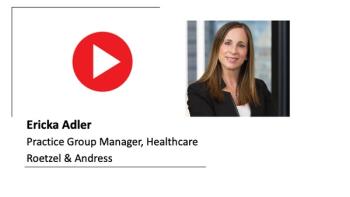
GLP-1s are in high demand from patients, and the results are often impressive. But are there hidden risks in prescribing these drugs?

GLP-1s are in high demand from patients, and the results are often impressive. But are there hidden risks in prescribing these drugs?

GLP-1s are in high demand from patients, and the results are often impressive. But are there hidden risks in prescribing these drugs?

GLP-1s are in high demand from patients, and the results are often impressive. But are there hidden risks in prescribing these drugs?

GLP-1s are in high demand from patients, and the results are often impressive. But are there hidden risks in prescribing these drugs?
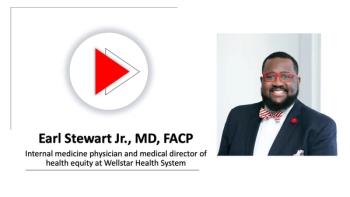
Earl Stewart Jr., MD, FACP, shares tips for smaller practices looking to engage the community to advance health equity at the ACP Internal Medicine Meeting 2025 at New Orleans.
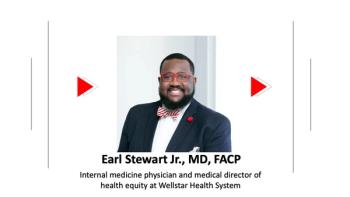
Earl Stewart Jr., MD, FACP, explains the economic impact of health equity in health care at the ACP Internal Medicine Meeting 2025 in New Orleans.

Earl Stewart Jr., MD, FACP, discusses the role of CME and training in advancing health equity at the ACP Internal Medicine Meeting 2025 in New Orleans.

Earl Stewart Jr., MD, FACP, an internal medicine physician and medical director of health equity at Wellstar Health System, talks about advancing health equity at the ACP Internal Medicine Meeting 2025 in New Orleans.

Earl Stewart Jr., MD, FACP, talks about existing biases in clinical settings at the ACP Internal Medicine Meeting 2025 in New Orleans.
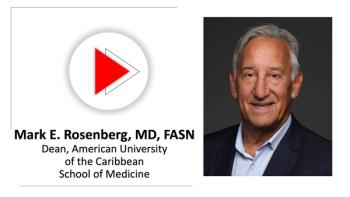
Perspectives from a medical school dean about an alternative path for budding physicians.

Earl Stewart Jr., MD, FACP, explains where to start with health equity in your practice at the ACP Internal Medicine Meeting in New Orleans.
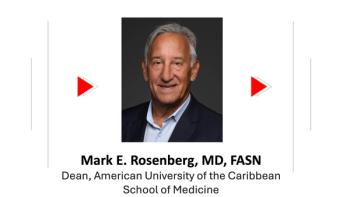
Mark E. Rosenberg, MD, FASN, dean of the American University of the Caribbean School of Medicine, shares his perspectives on education, Match 2025 and more.

GLP-1s are in high demand from patients, and the results are often impressive. But are there hidden risks in prescribing these drugs?

GLP-1s are in high demand from patients, and the results are often impressive. But are there hidden risks in prescribing these drugs?

GLP-1s are in high demand from patients, and the results are often impressive. But are there hidden risks in prescribing these drugs?

Mark E. Rosenberg, MD, FASN, dean of the American University of the Caribbean School of Medicine, shares his perspectives on education, Match 2025 and more.

Mark E. Rosenberg, MD, FASN, dean of the American University of the Caribbean School of Medicine, shares his perspectives on education, Match 2025 and more.

Mark E. Rosenberg, MD, FASN, dean of the American University of the Caribbean School of Medicine, shares his perspectives on education, Match 2025 and more.

Mark E. Rosenberg, MD, FASN, dean of the American University of the Caribbean School of Medicine, shares his perspectives on education, Match 2025 and more.

Mark E. Rosenberg, MD, FASN, dean of the American University of the Caribbean School of Medicine, shares his perspectives on education, Match 2025 and more.

Mark E. Rosenberg, MD, FASN, dean of the American University of the Caribbean School of Medicine, shares his perspectives on education, Match 2025 and more.

Mark E. Rosenberg, MD, FASN, dean of the American University of the Caribbean School of Medicine, shares his perspectives on education, Match 2025 and more.

Mark E. Rosenberg, MD, FASN, dean of the American University of the Caribbean School of Medicine, shares his perspectives on education, Match 2025 and more.

GLP-1s are in high demand from patients, and the results are often impressive. But are there hidden risks in prescribing these drugs?

GLP-1s are in high demand from patients, and the results are often impressive. But are there hidden risks in prescribing these drugs?

GLP-1s are in high demand from patients, and the results are often impressive. But are there hidden risks in prescribing these drugs?
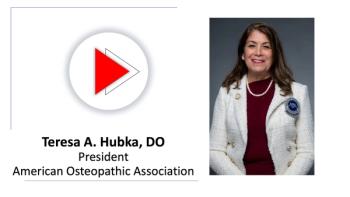
AOA President Teresa A. Hubka, DO, discusses the 2025 Match for medical students.
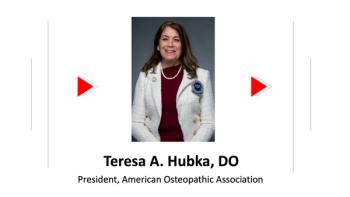
AOA President Teresa A. Hubka, DO, discusses the 2025 Match for medical students.

AOA President Teresa A. Hubka, DO, discusses the 2025 Match for medical students.

AOA President Teresa A. Hubka, DO, discusses the 2025 Match for medical students.